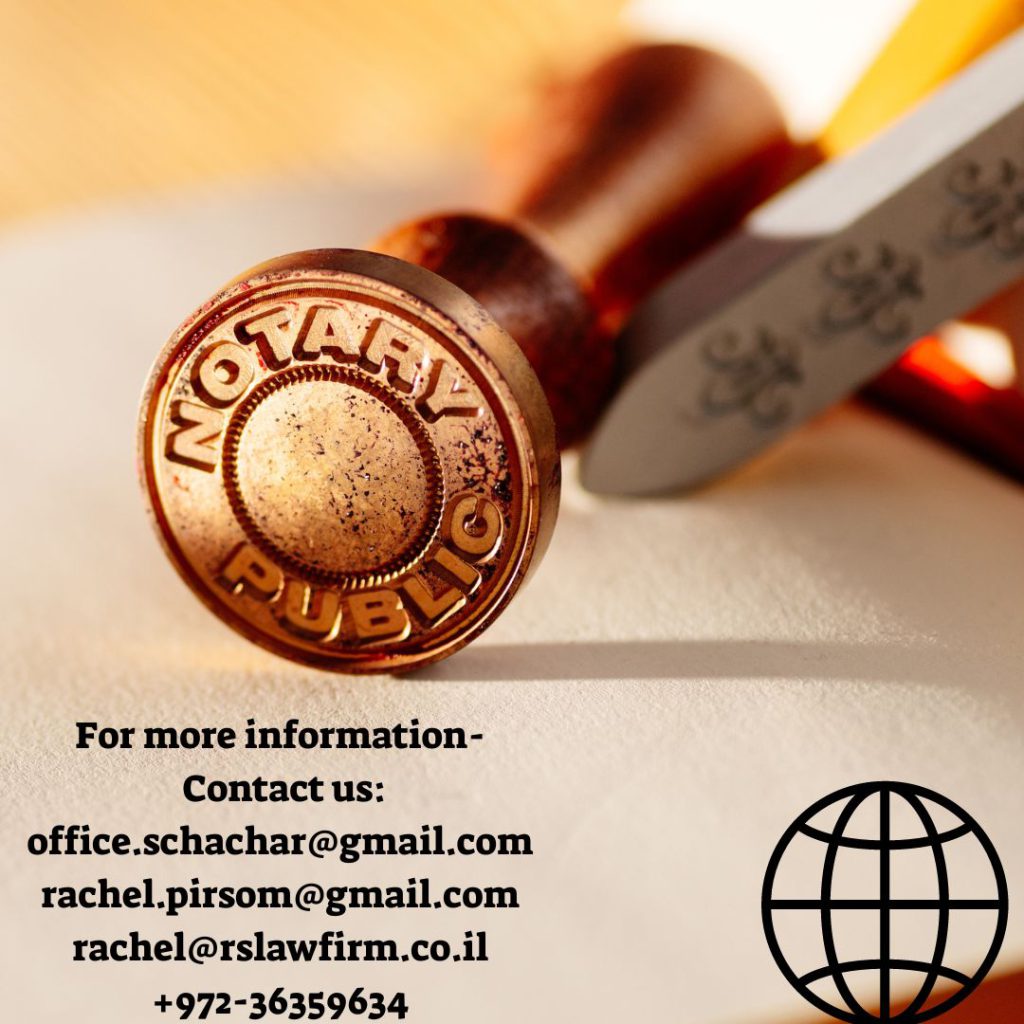In an increasingly interconnected world, the demand for notarized translations has grown substantially. Notarized translations play a critical role in ensuring the authenticity and legality of various documents, including legal contracts, academic degrees, and certificates of integrity. These meticulously translated and certified documents are essential for compliance with local laws and regulations, facilitating international transactions, and establishing trust and credibility. In this article, we delve into the significance of notarized translations, particularly focusing on certificates of integrity, their importance, and the meticulous process of obtaining them.
The Expanding Need for Notarized Translations
With globalization driving the exchange of information, goods, and services across borders, the requirement for notarized translations has become increasingly prevalent. Various scenarios necessitate the use of notarized translations:

| Scenario | Description |
| Legal Compliance | Mandated for legal documents to ensure accuracy and adherence to local laws. |
| Academic Validation | Required for academic transcripts and degrees for international recognition. |
| Personal Necessities | Necessary for personal documents like birth certificates and police clearances for various applications. |
1. Legal Compliance
Government agencies and legal entities often mandate notarized translations to ensure that documents are accurately translated and adhere to local laws. For instance, an individual from another country applying for a driver’s license in a new jurisdiction may need to provide a notarized translation of their existing license to establish eligibility. Similarly, companies operating internationally may require notarized translations of contracts to ensure that all parties comprehend and consent to the terms and conditions of the agreement.
2. Academic Validation
Students and professionals aspiring to pursue education or career opportunities abroad frequently require notarized translations of their academic transcripts and degrees. This is especially vital in professions such as medicine, engineering, and law, where permits and licenses are prerequisites for practice. Notarized translations of these documents validate the individual’s qualifications, ensuring they are accurately represented and recognized in their new environment.
3. Personal Necessities
Individuals may also seek notarized translations for personal reasons, such as visa applications, marriage ceremonies, or naturalization processes. These documents may encompass birth certificates, marriage certificates, and police clearance certificates. Notarized translations are indispensable in ensuring the acceptance of these documents by relevant authorities and averting delays or complications in the application process.
| Importance | Explanation |
| Building Trust | Certificates of integrity demonstrate good moral character, fostering trust and confidence. |
| Preventing Fraud | Vital in preventing fraud and corruption, especially in fields like finance and government. |
| Legal Requirements | Often required for employment, licensing, and participation in public tenders to meet legal prerequisites. |
The Significance of Certificates of Integrity
A certificate of integrity is an official document that attests to an individual’s good moral character and the absence of a criminal record. Issued by government agencies, courts, or professional associations, this document verifies that the individual has not been convicted of any crimes or engaged in unethical conduct. The certificate of integrity holds immense importance for several reasons:

1. Building Trust and Confidence
Employers, organizations, and other entities rely on certificates of integrity to verify the backgrounds and moral standing of individuals with whom they engage. By furnishing a certificate of integrity, individuals can demonstrate their responsibility, trustworthiness, and reliability. This can significantly enhance their prospects in both personal and professional endeavors.
2. Preventing Fraud and Corruption
In fields such as finance, law, and government, where the risk of fraud and corruption is elevated, certificates of integrity are crucial in thwarting illicit activities. Mandating such certificates helps organizations and governments ensure that the individuals they collaborate with maintain high ethical standards. This is pivotal in preserving the integrity of their operations.
3. Legal and Administrative Requirements
Certificates of integrity are frequently required to satisfy legal and administrative prerequisites. These documents may be essential for employment, licensing, or participation in public tenders. Failure to present a certificate of integrity when required can result in the rejection of applications and compliance issues.
| Steps | Description |
| Selecting a Qualified Translator | Choose a translator fluent in both languages and knowledgeable about legal and cultural context. |
| Accurate Translation | Translator ensures precision and completeness in translating the certificate of integrity. |
| Notarization by a Licensed Notary | Licensed notary confirms the translator’s identity and attests to the translation’s accuracy. |
| Submission to Relevant Authorities | May involve submitting both the original certificate and the notarized translation for approval. |
Navigating the Process: Obtaining a Notarized Translation
Securing a notarized translation for a certificate of integrity is a multi-step process that demands meticulous attention to detail. To ensure the translation’s recognition and acceptance by relevant authorities, individuals must follow these key steps:
1. Selecting a Qualified Translator
The initial step in obtaining a notarized translation is identifying a competent translator fluent in both the source and target languages. It is imperative to choose a translator with expertise in translating legal and official documents and a deep understanding of the cultural context of the languages involved.
2. Accurate Translation
Once a qualified translator is selected, they embark on translating the certificate of integrity into the target language, ensuring precision and completeness. Accuracy in translation is paramount to maintaining the document’s integrity and legal validity.
3. Notarization by a Licensed Notary
Subsequently, the translated document must be notarized by a licensed notary. The notary’s role is to confirm the translator’s identity and attest to the translation’s accuracy. Their seal and signature on the document are a testament to its authenticity.
4. Submission to Relevant Authorities
In some instances, notarized translations may need to be submitted to government agencies or other authorized organizations for review and approval. This typically involves providing both the original certificate of integrity and the notarized translation.

| Benefits | Explanation |
| Precision Assurance | Professional translators ensure accurate, comprehensive, and culturally sensitive translations. |
| Quality Control | Rigorous proofreading and editing processes minimize errors and enhance translation reliability. |
| Compliance with Legal Standards | Professional services are well-versed in meeting legal and cultural standards, ensuring compliance. |
Trust the Professionals for Accurate Translations
The notarized translation process for certificates of integrity is intricate, and precision is of utmost importance. Even minor errors or omissions in translation can have substantial legal and professional consequences. Therefore, entrusting this task to qualified and experienced professionals is essential.
Professional translation services offer a team of skilled translators who are not only fluent in the source and target languages but also possess expertise in translating legal and official documents. They ensure the translation is accurate, comprehensive, and compliant with relevant cultural and legal standards.
Moreover, professional translation services have stringent quality control procedures in place. Translations undergo thorough scrutiny, including a review of the original document, as well as proofreading and editing of the translated text. This comprehensive approach minimizes the risk of errors and enhances the reliability of the translation.
In conclusion, notarized translations of certificates of integrity are indispensable for establishing trust and credibility in international transactions. By adhering to the outlined process and collaborating with professional translators and notaries, individuals and organizations can successfully navigate this process. The resulting notarized translations serve as a testament to the authenticity and trustworthiness of the individuals and documents involved.
Additionally, the notarized translation, along with the apostille stamp, can be submitted to any entity that requires such a certificate. A notable example is the application for a Portuguese passport, which is equivalent to a European passport.
For individuals seeking to clear a certificate of integrity that includes an old criminal record, a request to shorten the statute of limitations can be submitted to the President of the State through the Pardons Department of the Ministry of Justice. Legal counsel, such as a criminal lawyer, is recommended for this process.
In today’s interconnected world, notarized translations of certificates of integrity play a vital role in ensuring trust, compliance with legal requirements, and the smooth functioning of international transactions. Trusting professionals in the field is the key to accuracy, reliability, and success in navigating this critical process.

| Key Points | Summary |
| Notarized translations | Essential for legal compliance, academic validation, and personal document acceptance abroad. |
| Certificates of integrity | Validate good moral character, prevent fraud, and meet legal requirements for various applications. |
| Navigating the process | Involves selecting qualified translators, accurate translations, notarization, and submissions. |
| Trusting professionals | Professional translation services offer accuracy, quality control, and compliance with standards. |
Your Trusted Partner for Notarized Translations: Rachel Schachar Law & Notary Firm
I highly recommend Rachel Schachar Law & Notary Firm for all your notarized translation needs. With their wealth of experience and expertise in the field, this veteran firm has consistently delivered exceptional translation services in multiple languages and across various document types. Their commitment to precision and accuracy ensures that your documents will meet the highest standards, making them suitable for international use. Whether you require translations for personal documents, legal papers, or business agreements, Rachel Schachar Law & Notary Firm’s dedicated team will provide you with professional and reliable service. Trust in their proven track record and extensive knowledge in notarized translations, and you’ll find a dependable partner to assist you in navigating the complexities of global communication and documentation.




